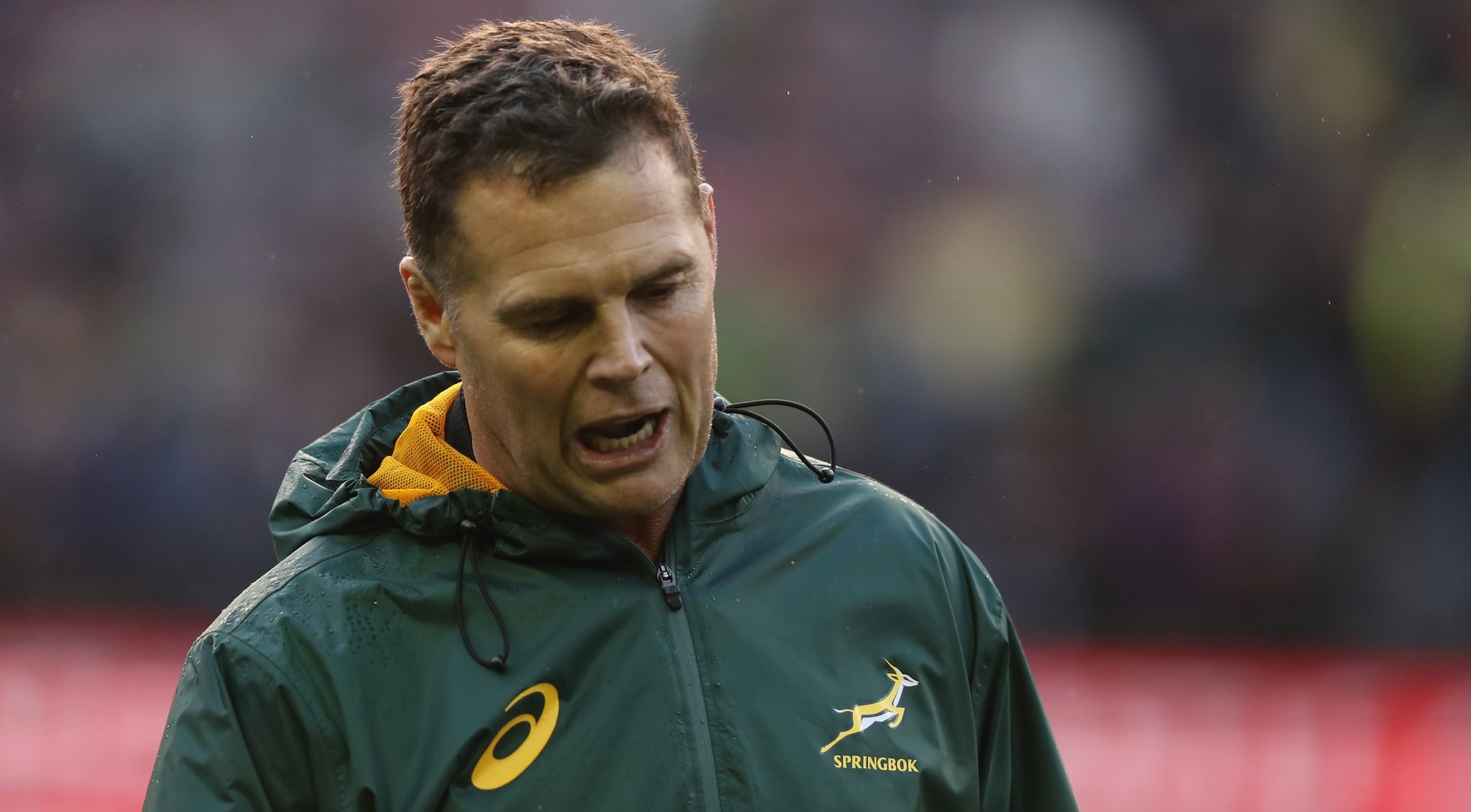Why Erasmus and SA Rugby lost bid to have hearing broadcast live

Springboks boss Rassie Erasmus and SA Rugby wanted their recent misconduct hearing broadcast live to the general public but their request was contested by World Rugby and it was ultimately decided by the independent judicial committee to keep the proceedings private as they happened. The 80-page written judgement since published on foot of the hearing’s verdict is full of compelling vignettes about the case, from how the whole saga unfolded following the first Lions versus Springboks Test match on July 24 through to the ins and out of what happened at the hearing which took place over three days in October and one in November.
It all resulted in Springboks director Erasmus getting banned from all rugby for two months and banned from any involvement on a matchday until September 30 next year. SA Rugby must also pay a fine of £20,000, while Erasmus and SA Rugby must also apologise for their actions. Both parties are exercising their right to appeal.
Whatever the outcome of that appeal, this is a case that has piqued the interest of rugby fans from around the world and knowing it would be so high profile, Erasmus and SA Rugby had wanted the proceedings to be conducted live in public and had made applications in writing to the judicial committee. These applications were resisted by World Rugby, while there was also an application from a television production company to broadcast the hearing.
In the end, the judicial committee decided the hearing would not be broadcast live – even though they would be recorded – and the written judgment set out at length the reasons for drawing that conclusion.
“There are differences between the public being interested, the public interest and the interests of justice. The starting point is that hearings of this nature ordinarily will take place in private. Nothing we have read or heard has shifted that presumption,” wrote the judicial committee on page twelve of its 80-page judgment.
"My reputation as a referee and person will forever be tarnished"
– What Nic Berry told the judicial hearing about how the 'character assassination' by Rassie Erasmus damaged him#Springbokshttps://t.co/BJ2uN3Z5Rb
— RugbyPass (@RugbyPass) November 18, 2021
“We also had regard to the interests of the witnesses, and in particular Nic Berry who has already been the subject of what we conclude to have been a great deal of unfair and unwanted public criticism (and worse) following the publication of the Erasmus video. We were also concerned to ensure these proceedings did not develop into a spectacle detracting from the true issues we had to resolve.
“We disagree with the submission that in this case, public proceedings would afford the parties protection which privacy does not. Rassie Erasmus and SA Rugby are represented by senior and experienced lawyers. The judicial committee is comprised of the same and each member is independent of World Rugby.
“Due process and fairness were observed at all stages. Public scrutiny would have no effect at all on the fairness of these proceedings nor oblige witnesses to be more truthful than they might otherwise be.
“We understand the importance of public scrutiny. However, while the proceedings are private, they are not secret. The public will be informed by published decisions that record the significant aspects of the case, the relevant evidence, our factual findings and the reasons for them. A fully detailed factual chronology is attached to and is a part of this decision. It contains some 98 individual entries covering a period from July 14 to August 3.”
Changes have been proposed to "prevent match officials being ambushed and subjected to unfair and unwarranted pressure"#Springbokshttps://t.co/Roix49Djr2
— RugbyPass (@RugbyPass) November 18, 2021

































